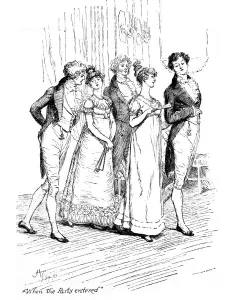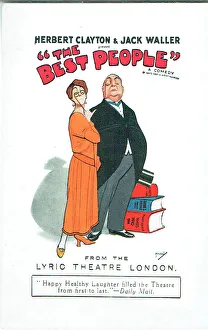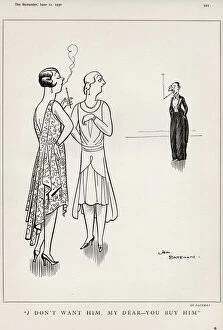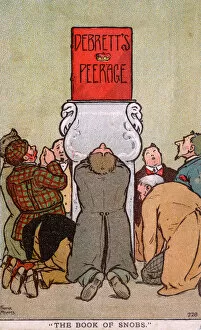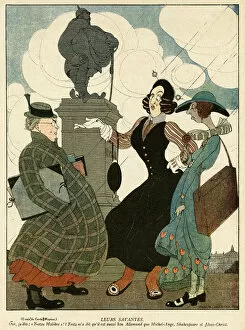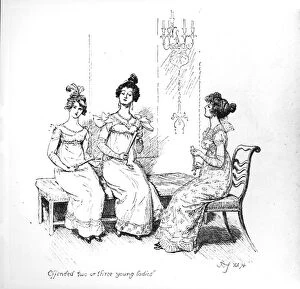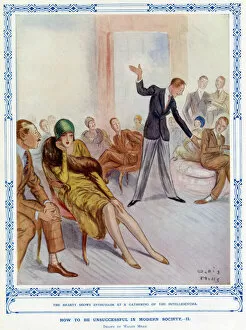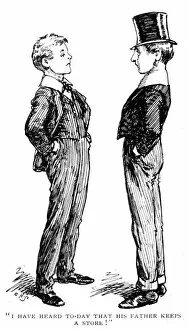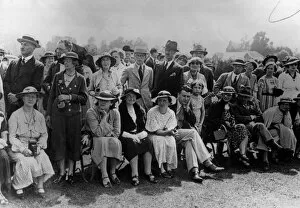Snobs Collection
When the party entered, the room was filled with the elegant charm of Pride and Prejudice's aristocrats
All Professionally Made to Order for Quick Shipping
When the party entered, the room was filled with the elegant charm of Pride and Prejudice's aristocrats, their refined manners and airs of superiority illustrated in Jane Austen's classic novel. Yet, beneath the polished facade, the Best People, as depicted in Gray and Hopgood's cartoon, hid their own insecurities and prejudices. H.M. Bateman's "I don't want him, my dear" caricatured the snobbishness of some, while Eton College's school shop boys, with their blazers and privileged looks, worshipped at the altar of Debrett's Peerage. Even in wartime, as seen in the German women as seen by the French cartoon, class distinctions persisted, offending two or more young ladies, the Bingley sisters from Pride and Prejudice. In modern society, one might find themselves unsuccessful, as shown in the "How to be unsuccessful in modern society - 2" comic, due to a lack of the POSH (Privilege, Old Money, and Social Hierarchy) group's acceptance. Class distinctions may have evolved, but the snobbery that comes with them remains a timeless phenomenon.

